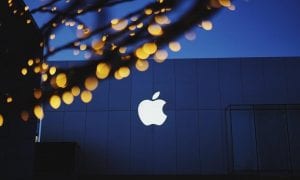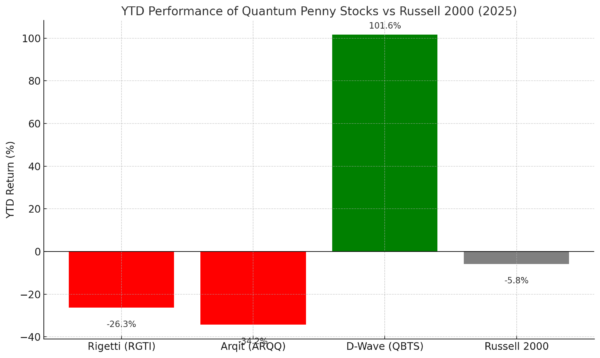Apple Stock (Nasdaq: AAPL) – Why You Should be Cautious

Wall Street is pessimistic on Apple stock (Nasdaq: AAPL), by and large. And there are good reasons to be fearful about the tech stock giant.
One, of course, is the signature trade war with China instituted by President Trump. But this is hardly a problem unique to Apple.
Many companies, some listed on the Dow Jones, and many components of the S&P 500, are affected by the much-criticized American economic policy.
Apple Stock (Nasdaq AAPL) – Not So Shiny
Meanwhile, the average selling price of the iPhone, Apple’s signature product, may very well see a decline in fiscal year 2020. That’s because consumers are gravitating toward cheaper products, including older, less expensive iPhones and Samsung phones.
The Apple iPhone 11 starts at $50 lower than its predecessor, the Apple X iPhone. And earlier generations of the phone are seeing lower prices than ever.
Consumers are starting to ask themselves what they are truly getting for the premium they pay for the top-of-the-line iPhone – a slightly better camera? It may no longer seem worth its commanding prices.
It’s possible that reduced prices could yield higher iPhone sales overall. But this is not guaranteed as the market for the product lurches on in a slowing economy.
Should you buy Apple stock right now? That, of course, depends upon who you ask.
For example, Jefferies analyst Kyle McNealy argues that the iPhone will do better than expected in 2020. This is due in large part to its new 5G capabilities.
McNealy gave the stock a “Buy” rating with a price target of $260.
And the iPhone 11, the Pro and the Pro Max models of the phone are flashing signals of strong sales.
Apple has also stated that its Apple TV+ subscription video service is going to be priced at $4.99 per month. Even better, the service will be free for a year for new Apple customers.
So there are some – at least superficial – reasons to find optimism with Apple.
But here’s a bigger reason why you shouldn’t.
Apple Has Lost Its Innovative Edge
I’m going to switch gears for a moment and tell you a story about a conversation I had the other day.
A colleague of mine asked me about a small, thin white device on my desk.
I shouted back with glee that it was an iPod Touch, like a proud father showing off his son’s football trophy.
He looked at me funny. It didn’t register. Then a look of vague recognition came over his face. Sure, he had heard of iPods and iPod Touches before.
He just hadn’t seen one in awhile. A long while.
The iPod, especially my favorite, the iPod Classic, once represented everything unique and innovative about the spirit of Apple.
Its software counterpart, iTunes, revolutionized the music industry. You could now buy virtually any song on demand for the low price of $0.99 each.
Plus, with the iPod, you could take all of your music with you. Anywhere.
It was a total game changer. And it most likely saved the entire music industry from the brink of an apocalypse that had been set off by pirating companies like Napster and LimeWire.
Today, the iPod is a dinosaur. And its iconic product sibling, the iPhone, is commanding lower prices than before, despite having once revolutionized the mobile industry the way iTunes and the iPod did with music.

Where Is Apple’s Innovation Mojo?
You see, Apple has a problem, and it isn’t trade wars with China or disruption in Hong Kong or even a U.S. recession.
Apple has an innovation problem. And it’s had one for a while.
Greg Petro of Forbes titled his piece from June 7 “At Its Core, Apple Is No Longer Innovative.”
Petro writes:
The truth of the matter is that at its core, Apple’s woes go far beyond their ability to sell their flagship smartphones. The company’s challenges surround one simple fact: Apple is not innovative anymore across any category. Apple is failing to bring anything new to the table in smartphones, apps, smart devices or even their retail stores. And until they find a way to do so, we will continue to watch this company unravel.
Apple products in the Steve Jobs era were never beloved for their bargain-basement prices, because they were not bargains. They were expensive.
Apple was loved because of its brand culture of innovation, its adventurous spirit. Its willingness to take humdrum products like phones and music players to soaring new heights.
That adventurous spirit has been sorely lacking in the Tim Cook years, and it’s becoming a major problem for the company.
I’m not saying you should give up on Apple or that it’s not a “Buy” right now.
I look at the iPod Touch on my desk with a slightly nostalgic expression mixed with painful worry.
If you are considering buying Apple stock do your diligence and just be cautious.
Apple Company Profile
Apple, a Cupertino, California, company, is one of the most successful firms in the world. It’s core business is the design, manufacturing and marketing of personal computers like the famous MacBook, mobile phones like the iPhone X and media products such as iTunes.
In 2018, Apple did $265 billion in sales for a net income of $59 billion. The balance sheet reported $365 billion in total assets and $258 billion in liabilities. Here is some more of Apple stock by the numbers:
Apple
Sector: Technology
Industry: Consumer Electronics
CEO: Tim Cook
Revenue: $259.03 Billion
Net Income: $55.69B
Diluted EPS: $11.78
– Brian M. Reiser
If you found this article on Apple stock (Nasdaq: AAPL) helpful, I invite you to sign up for Investment U’s free e-newsletter by filling in your email address below. Each day you’ll get cutting edge thoughts on investing, finance and related topics delivered right to your inbox. So you can read it in your pajamas and bunny slippers.
About Brian M. Reiser
Brian M. Reiser has a Bachelor of Science degree in Management with a concentration in finance from the School of Management at Binghamton University.
He also holds a B.A. in philosophy from Columbia University and an M.A. in philosophy from the University of South Florida.
His primary interests at Investment U include personal finance, debt, tech stocks and more.





